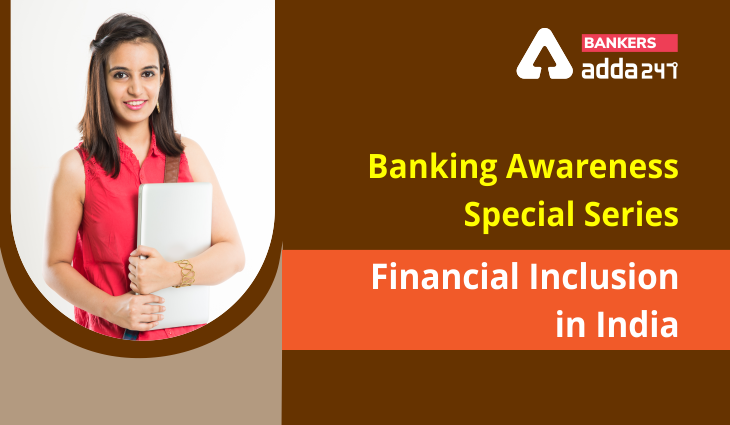Team Adda247 and Bankers Adda have introduced a Special Banking Awareness series for SBI and IBPS Interviews 2021. In this series, we will be introducing the candidates with some banking awareness topics Daily that will improve their general awareness and will also ensure that the candidates do not lack in any banking term when it comes to the interview round. Today the topic of our Banking Awareness Series is Financial Inclusion in India.
Financial Inclusion in India
Definition: Financial Inclusion means the availability and equality of opportunities to access financial services. Financial inclusion is mostly for those who are unbanked and under-banked. Financial includes the access of the products of banking, loan, Insurance, and equity.
History and Objectives: The main objective of financial inclusion is to remove all hurdles to obtain and to provide financial products and banking services to any person who wants them. In India, financial inclusion has been a goal since the 1950s. The nationalization of banks in 1969 had brought banking facilities to unreached areas and regions of the country. The Lead Bank scheme was followed by the nationalization of banks to coordinate banks to meet their credit needs. In 1975 Government established Regional Rural Banks (RRBs) to reach rural areas of the country.
Some programs or schemes to achieve financial inclusion:
No frills accounts (NFAs) which are known as BSBDA (Basic savings Basic deposit accounts), this accounts have minimal charges on overdraft fees and can be opened with no or minimum balance.
The business correspondents (BC) model enabled banks to serve in neglected areas by allowing intermediaries to provide transactions and deliver other banking services directly. In the last, some years Common Service Centres (CSCs) also work as BCs with local governing gram panchayats to improve penetration of banking services.
The Pradhan Mantri Jan Dhan Yojana (PMJDY) was launched by PM Modi in 2014 to provide “Universal access” to banking through the creation of basic banking accounts which covers basic financial services also.
Several programs and schemes were launched to achieve the goal of financial inclusion; some of them are General Credit Cards, Kisan Credit Cards, Electronic benefit transfer, The Self Help Group (SHG) linkage model, Credit Co-Operative societies, and many more.



 The Hindu Review October 2022: Download ...
The Hindu Review October 2022: Download ...
 Adda vs Testbook: Which is Better for Ex...
Adda vs Testbook: Which is Better for Ex...
 08th January 2025 Current Affairs (Daily...
08th January 2025 Current Affairs (Daily...




